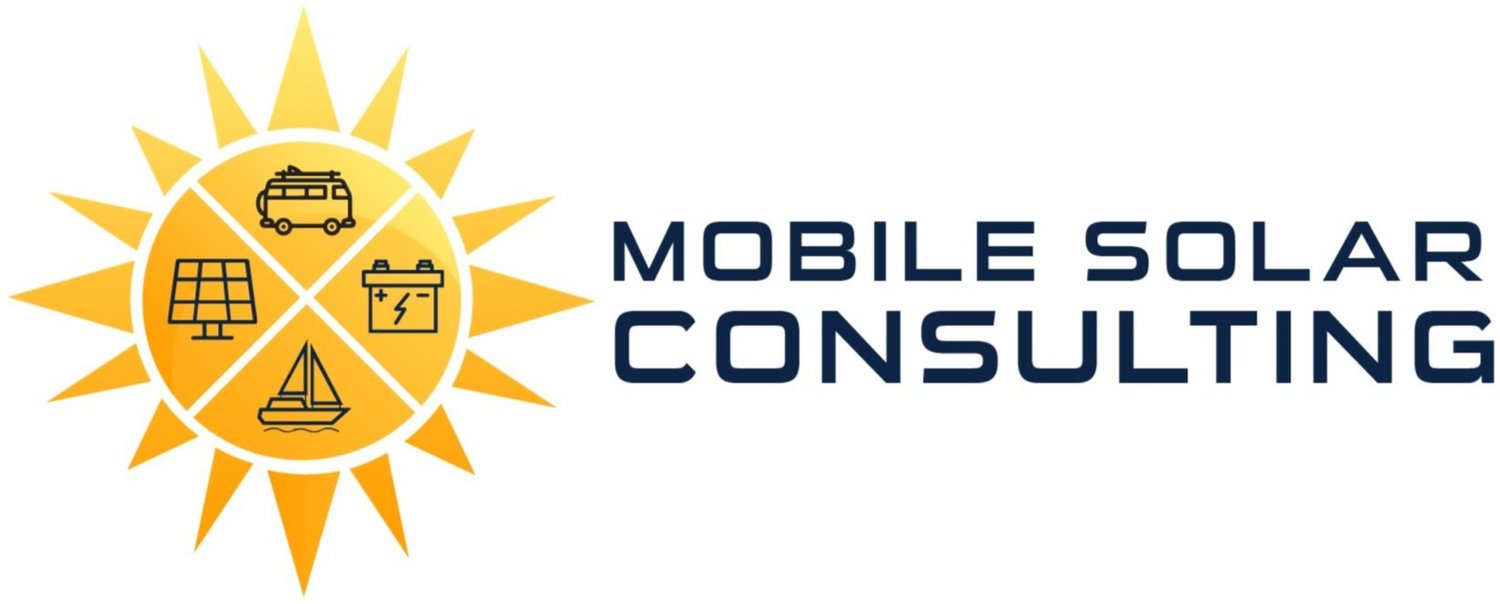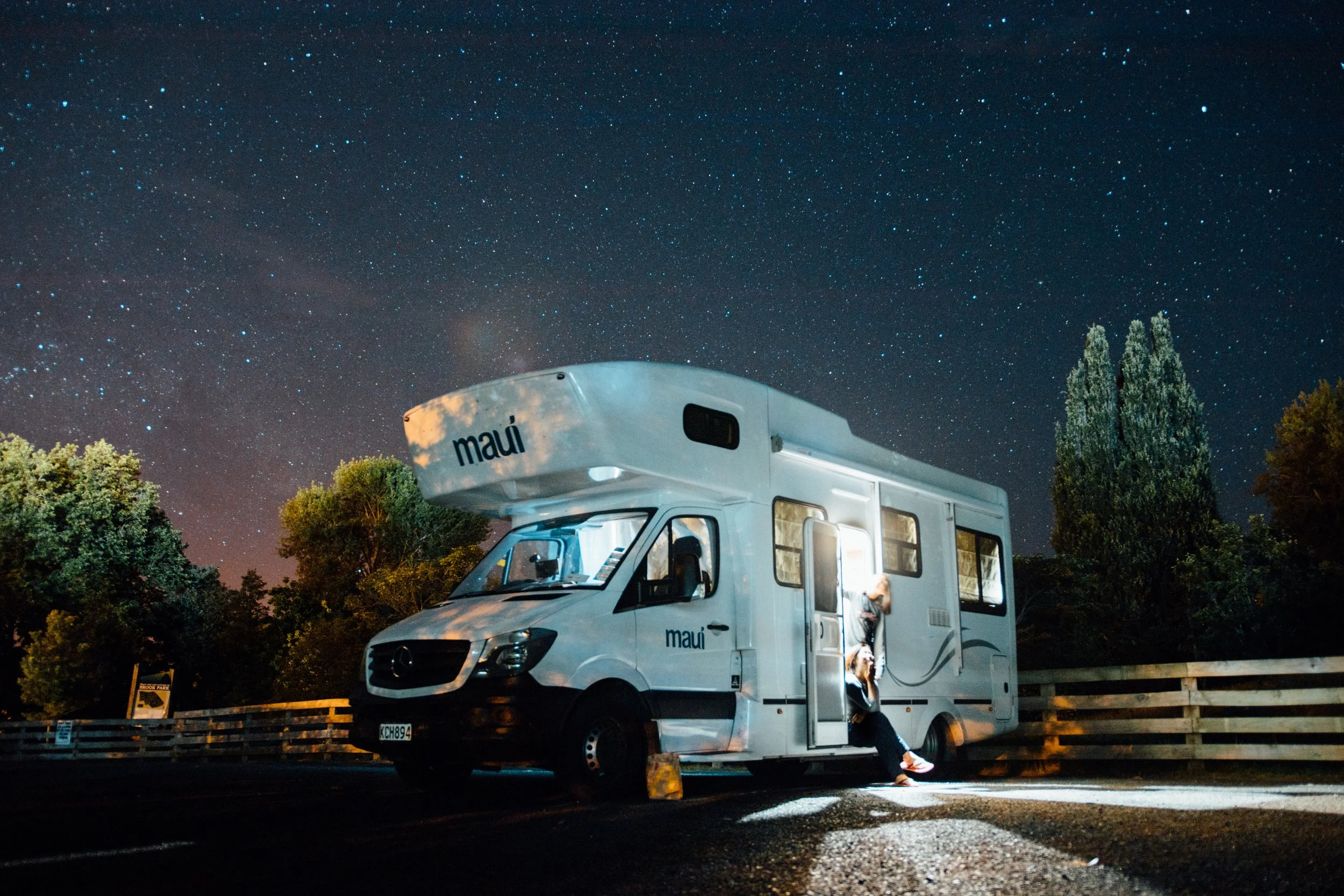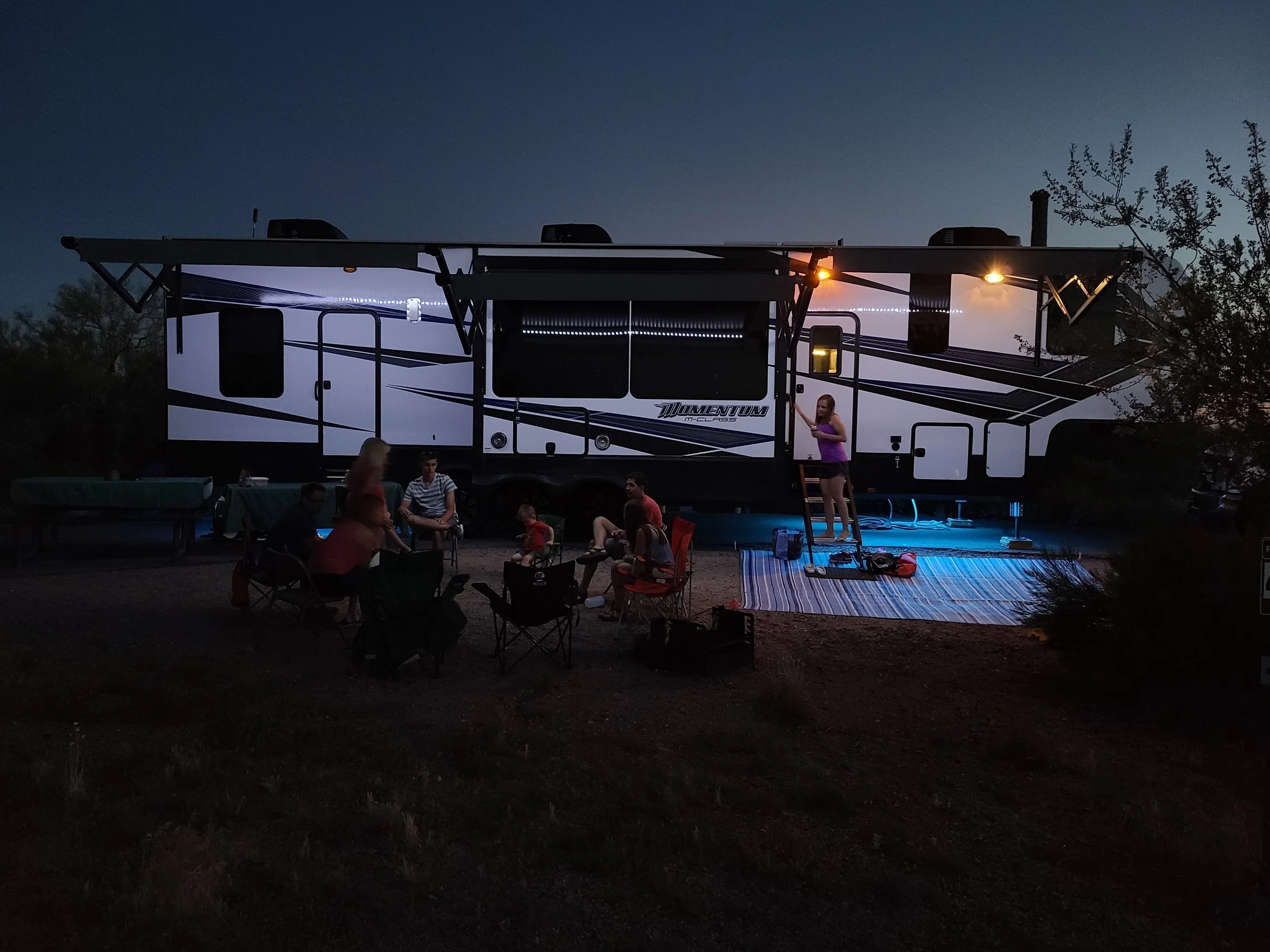Solar Panels vs. Generators for Campers. A Florida-Specific Comparison.
Cost Comparison
Let’s cut to the chase, the initial cost of a gasoline-powered generator will be less than a solar system, however, the cost of fuel for your generator over time will be its financial downfall. Though a solar system is a larger initial investment, it provides free energy for decades to come. Typically, your solar system will become cheaper than the cost of fueling a generator in 3 to 5 years. Using your vehicle specifications and energy needs, we’ll calculate the point in time in which your solar system pays for itself. We suggest reading the additional sections below but if you’re in a hurry, scroll to the bottom of the page to input your specs and get a cost-based comparison!
What variables affect the cost?
Interior size - how much space do you need to cool? Just like a home, a large RV will require more energy to cool than a small conversion van.
Appliances - what do you need to power? An air conditioning unit is a necessity in hot climates but comes with a huge energy burden. In most cases, your AC unit requires more energy than powering a refrigerator, motorized sink pump, stovetop, and small electronics combined.
Desired temperature - everyone has a unique temperature preference, if the outside temperature is 80 degrees, cooling your van or RV to 65 degrees requires more than double the energy input than cooling it to 75 degrees.
Insulation and window quality - the quality and amount of insulation and windows greatly impact heat transfer. Upgrading these are useful for cutting cost in both systems and we highly recommend that you do so. See we recommend for insulating your home on wheels.
Solar System Variables
The main variables specific to a solar energy system include equipment cost, installation cost, maintenance cost, and climate or hours of sunlight.
Startup cost - the cost of solar and energy storage equipment with professional installation. This is the main deterrent from solar for customers comparing both systems. For customers who wish to install the system themselves, we offer DIY support, parts lists, custom wire diagrams and more to make the process seamless for you.
Maintenance cost - inevitably, there will be a point in time when both gasoline generators and solar systems require maintenance. Trusted equipment brands used by Mobile Solar Consulting like Victron Energy, Rich Solar, Blue Sea Systems, and SOK Battery all come with multi-year warranties, protecting you from surprise costs for years to come.
Hours of sunshine - according to the Florida Climate Center, the cloudiest city in Florida is Jacksonville with 144 cloudy days annually. A cloudy day is defined as 8/10 to 10/10 average sky cover. We will use Jacksonville in our calculations to provide you with the worst-case scenario for solar energy systems. Despite its cloudiness under Florida standards, Jacksonville still boasts an impressive 2,885 hours of annual sunlight with a monthly high of 301 hours in May and a monthly low of 181 hours in December. This is more than enough sunshine to power your energy needs with the right solar system professionally installed. For reference, here are some popular destinations with their respective hours of annual sunshine.
New York City - 2,540
Orlando - 3,119
Chicago - 2,565
San Franciso - 3,072
Los Angeles - 3,259
Miami - 3,150
Key West - 3,409
Generator Variables
Startup cost - the size of the generator is the main factor in startup cost. For the average campervan or Class B camper, you would want a 3-4kW generator. A decent generator of this size costs about $1000. A large RV would require a larger generator, around 13-15kW. These are often built into the RV, but if not, they will cost over $3000.
Fuel - Although both gasoline and diesel-powered generators are available, the fuel will have minimal impact on overall cost. The fuel cost, however, makes your annual cost to power your camper uncertain. The average cost of gasoline in Florida increased by 80% in just two years from 2020 to 2022.
Run time - if you run a generator for many hours per day your cost can begin to skyrocket. For example, a campervan may use 2-3 gallons of gasoline by running a generator over one night. For a larger vehicle like an RV, 3-5 gallons of gasoline may be required to provide air conditioning over one night.
Load - although running a large load on a generator does consume fuel at a faster rate, simply allowing the generator to run idle will still burn a significant amount of fuel. You have the most efficient use of your fuel when powering a load roughly 80% of the size of your generator.
When Does Solar Pay For Itself? Comparing 3 Different Sized Vehicles
In the comparison below, we make several assumptions to estimate costs. We assume your system is used to power an air conditioner, along with other loads. We also assume daily use of your camper. These assumptions may not apply to you, and the cost can vary significantly.
Small Van (Class B or smaller)
For a small camper van such as a 144” wheelbase Sprinter, 159” Ram Promaster, 148” Ford Transit, or any other Class B camper, our customers usually receive a 12V system with 400 amp-hours of lithium batteries, a 3 kilowatt Victron Multiplus inverter, 500 watts of Rich solar panels, a 30 amp Victron Orion smart alternator charger and 30A shore-power connection (both useful in case you have a cloudy day), a monitoring system, and all other associated components and hardware. The cost of equipment is about $7,500, with professional installation costing $5000, for a total cost of $12,500.
If using a gas-powered generator, expect to consume 2 gallons per day. Including the cost of the generator ($1000+) and gas at $3.50 per gallon, your investment in solar would pay off within approximately 4.5 years.
Medium Camper (Class C)
For a medium camper such as a Class C RV, or for a customer with a smaller camper but higher energy demands and/or essential daily use of their camper for living or working, we recommend 600-800 amp-hours of battery storage, 750 watts of solar, and all of the same components from the smaller system. The cost of equipment is about $10,000, with professional installation costing $6000, for a total cost of $16,000.
If using a gas-powered generator, expect to consume 3.5 gallons per day. Including the cost of the generator ($1000) and gas at $3.50 per gallon, your investment in solar would pay off within approximately 3.5 years.
Large RV (Class A)
For a large RV or commercial food service truck, we recommend a minimum of 1000ah of storage. Usually, 2 x 3kW inverters are required. We use as much solar as we can fit on the roof - often over 1200 watts. And of course, all of the same components from the other systems as well. The total cost is about $15,000 for equipment and $7000 for professional installation, totaling $22,000.
If using a gas-powered generator, expect to consume 5 gallons of fuel daily. Including the cost of the generator ($3000) and gas at $3.50 per gallon, your investment in solar would pay off in approximately 3 years.
Environmental Comparison
Nearly 20 lbs of carbon dioxide (CO2) is emitted from burning just 1 gallon of gas. With that in mind, you’d spare the environment from 14,600 lbs, 25,550 lbs, or 36,500 lbs of CO2 for each year you power your small van, medium camper, or large RV with solar. In comparison, the average commuter car emits around 10,000 lbs of CO2 per year.
Lithium batteries and solar panels have their own environmental burdens during production and disposal, which are not as easily summarized as carbon dioxide emissions. However, it is widely accepted that their “environmental payback period” is less than 2 years, meaning they are a net positive for the environment after less than 2 years of daily use when compared to fossil fuel sources such as coal-powered electricity generation plants or gasoline and diesel generators.
Additional Benefits of Solar
We speak with customers daily who have a working generator but want to eliminate it.
Why?
Generators are:
Noisy
Smelly
Unreliable
Large
Unattractive
Time-consuming
Switching over to solar often saves space and weight by eliminating the space dedicated to the generator and the fuel reserves. Solar also saves time by eliminating the need to stop at gas stations and eliminating all maintenance and moving parts. You have complete freedom to boondock anywhere you want, never having to rely on infrastructure such as pipelines or overseas labor. For our doomsday preppers, solar is perfect for surviving the apocalypse! Once you switch to solar, you will never hear, smell, or see a generator again! Our power systems are designed in a clean and organized manner - every system is showcase worthy.
Florida's Climate Makes Solar Hard To Beat
With the cloudiest to sunniest destinations in Florida ranging from 2,885 to 3,409 average annual hours of sunlight and 181 to 231 average hours of sunlight even during the darkest month, solar energy systems are almost always a better bet in climates like Florida. Stay off the grid longer without the need to refuel or store heavy gasoline. Eliminating financial variables you cannot control and making a smarter long-term investment feels great.
Calculate the Exact Cost of Solar for My Camper
Don’t like estimating? We’ll do the math for you. Input the following data for calculations specific to your vehicle and energy needs. We’ll email you a personalized generator vs solar cost comparison within 24 hours!





